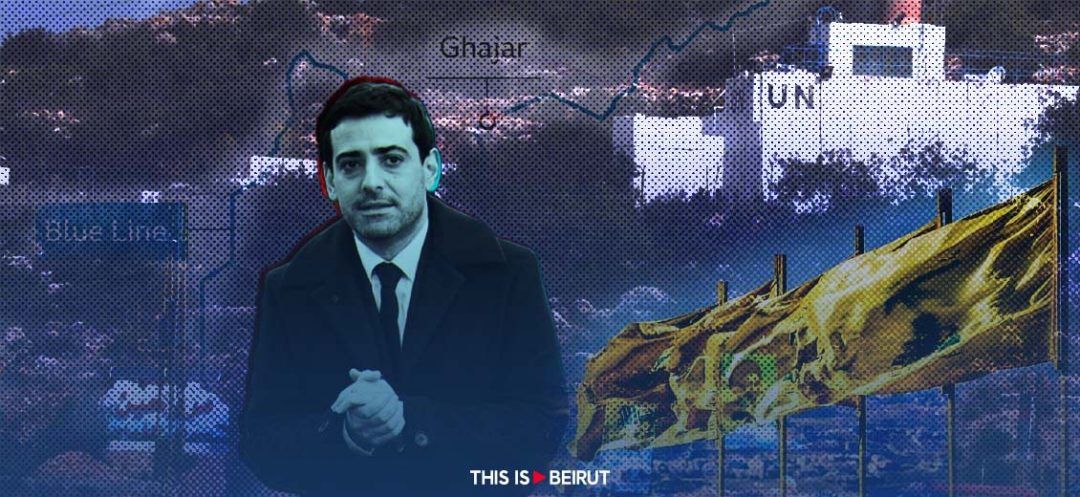- Home
- War in the Middle East
- French Initiative for the South Brought to a Halt

In a televised appearance, Hezbollah Secretary General Hassan Nasrallah responded to French Foreign Affairs Minister Stéphane Séjourné regarding the French initiative and the implementation of Resolution 1701. The French were dissatisfied with Nasrallah’s answer and are now fully convinced they will not be able to achieve a thing when it comes to the conflict between Hezbollah and Israel, as it is intrinsically linked to the war in Gaza.
According to French sources, Nasrallah’s response came ahead of comments by Parliament Speaker Nabih Berri, caretaker Prime Minister Najib Mikati and Army Commander Joseph Aoun. Some of these officials met with a joint delegation from the French army and Foreign Affairs Ministry to discuss the details of the French initiative, which includes the redeployment of the Lebanese army south of the Litani river, the withdrawal of Hezbollah troops 10 kilometers away from the border and the removal of the party’s facilities along the barbed wire. The same sources indicated that the information they received about the Lebanese officials’ refusal to proceed with the initiative in question is possibly inaccurate and that there is still room for negotiation.
Further information has shown that the French do not support the adoption of a new mechanism for the implementation of Resolution 1701, as the resolution includes its own mechanism to that end should the Lebanese and Israeli sides commit to abiding by it. It has also been stated that France has no bias for Israel and approaches the two countries in the same manner; this is what the French Foreign Minister wished to express during his visits to Tel Aviv and Beirut, where he insisted that peace on both sides of the border is necessary, not only to allow settlers to return to their homes in the North, but also to enable residents of South Lebanon to go back to their villages.
France has reportedly coordinated its efforts in that regard with the United States and some regional countries from the Quintet, despite conflicting positions. According to a Western diplomat, the French initiative was brought to a halt, much like all efforts previously made by the US, the UK, Germany and others. This increases the likelihood of escalation in South Lebanon and elsewhere, as demonstrated by recent events in the area.
More effective action should be taken, even though the chances of success are meager given the powerlessness of the Lebanese state and the stubbornness of Hezbollah. In an effort to solve the ongoing conflict, UNIFIL was tasked with sending further warnings to both Lebanon and Israel, to have them abide by the so-called rules of engagement.
According to French sources, Nasrallah’s response came ahead of comments by Parliament Speaker Nabih Berri, caretaker Prime Minister Najib Mikati and Army Commander Joseph Aoun. Some of these officials met with a joint delegation from the French army and Foreign Affairs Ministry to discuss the details of the French initiative, which includes the redeployment of the Lebanese army south of the Litani river, the withdrawal of Hezbollah troops 10 kilometers away from the border and the removal of the party’s facilities along the barbed wire. The same sources indicated that the information they received about the Lebanese officials’ refusal to proceed with the initiative in question is possibly inaccurate and that there is still room for negotiation.
Further information has shown that the French do not support the adoption of a new mechanism for the implementation of Resolution 1701, as the resolution includes its own mechanism to that end should the Lebanese and Israeli sides commit to abiding by it. It has also been stated that France has no bias for Israel and approaches the two countries in the same manner; this is what the French Foreign Minister wished to express during his visits to Tel Aviv and Beirut, where he insisted that peace on both sides of the border is necessary, not only to allow settlers to return to their homes in the North, but also to enable residents of South Lebanon to go back to their villages.
France has reportedly coordinated its efforts in that regard with the United States and some regional countries from the Quintet, despite conflicting positions. According to a Western diplomat, the French initiative was brought to a halt, much like all efforts previously made by the US, the UK, Germany and others. This increases the likelihood of escalation in South Lebanon and elsewhere, as demonstrated by recent events in the area.
More effective action should be taken, even though the chances of success are meager given the powerlessness of the Lebanese state and the stubbornness of Hezbollah. In an effort to solve the ongoing conflict, UNIFIL was tasked with sending further warnings to both Lebanon and Israel, to have them abide by the so-called rules of engagement.
Read more



Comments